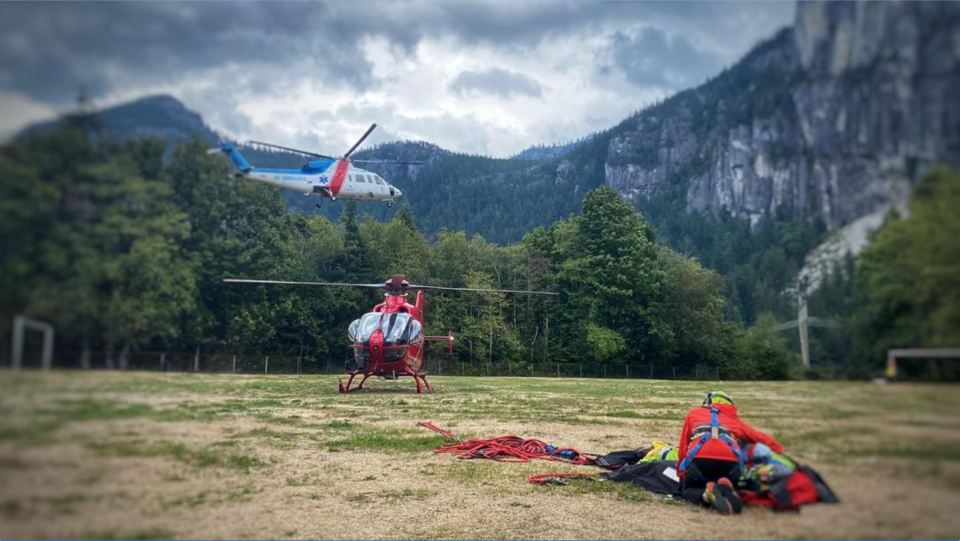Squamish Search and Rescue (SAR) reported a relatively quiet long weekend for the team to start September.
Squamish SAR manager, B.J. Chute, told The Squamish Chief that the team responded to two climbing incidents on Sunday, Sept. 3.
In the first call, SAR responded to a climbing group in the Tantalus Range which had experienced some gear malfunction. Chute said that SAR was able to pick up the group after they had self-rescued to a spot where a helicopter could land and then transported them to the Squamish Airport.
Shortly thereafter, a report of an injured climber on the Stawamus Chief came from BC Ambulance Service.
“We were able to quickly mobilize teams and the helicopter, given that we were already in the field to locate this climber,” said Chute, who added a ground team provided initial first aid and stabilization.
Ultimately, Chute said the climber was evacuated by a long line to the staging area at St’a7mes School. Chute said the climber was “significantly injured,” but had since contacted SAR and thanked them for their help.
Compared with the August long weekend that saw the volunteer team respond to five calls in one day, Chute called the weekend “pretty quiet.” Anecdotally speaking, however, Chute feels this year has seen more weekday calls.
Compared to last year, the SAR responses have been relatively on par as the team has responded to 93 calls in 2023 and had 99 calls up until this point in 2022. The last two years have seen fewer calls than in 2021 when there were 121 calls at this point, which Chute said was a bit of an outlier.
Chute estimated that 2023 will see around similar final numbers to that of 2022, which was 124.
Getting dark earlier
Looking ahead, Chute cautioned outdoor recreationists to think about the quickly changing daylight hours and weather that can coincide with that.
“When days get shorter, there's less time for people to complete whatever activity they are going to complete,” he said. “There really is an onus upon people who are going out to recreate to really do the research as to where they're going, how long that trip or activity is expected to take, and to calculate that.”
“Just take that five minutes to read recent trip reports, to look at the weather forecast, to look at daylight forecast, and to make wise decisions based on those.”
On average, Squamish loses about three minutes and 30 seconds of daylight each day in September. While it may not sound like a lot, the daylight hours on Sept. 30 are about 11 hours and 45 minutes compared with 13 hours and 30 minutes on Sept. 1.
And, the days will only get shorter from there until the winter solstice on Dec. 21.
Bookmark squamishchief.com so you can return for more local stories like this. Get Squamish news daily in our free newsletter. Sign up here.




